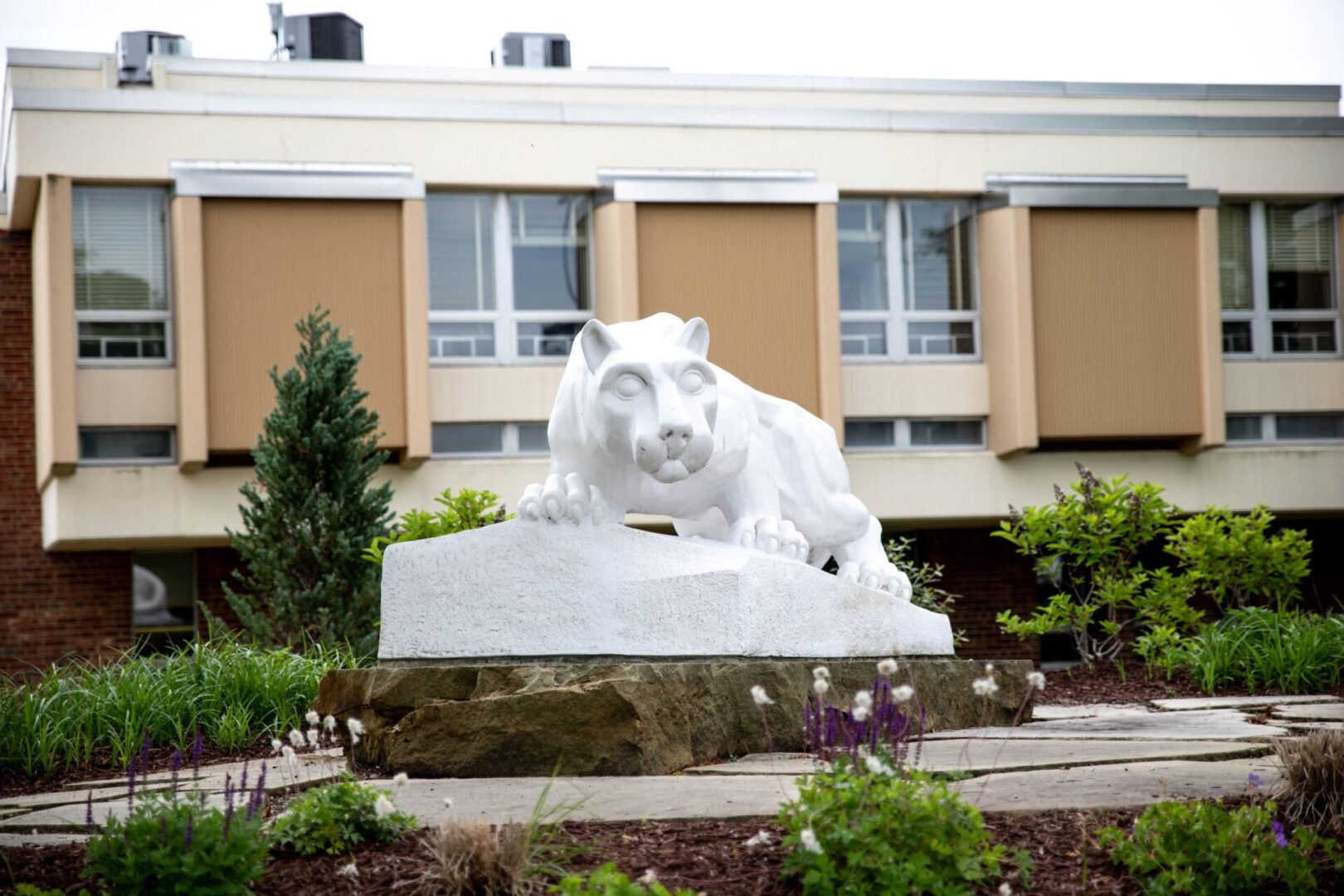WE ARE… Because of Commonwealth Campuses
As Penn State faculty at University Park for 18 years, my students and I commend Commonwealth Campuses. Penn State DuBois, Fayette, Mont Alto, New Kensington, Shenango, Wilkes-Barre and York gave some of my best students their “start” on the “2+2 plan.” Eleven days ago, I congratulated the Bellisario College of Communications student marshals. Two of our four departmental marshals, representing “Journalism” and “Telecommunications and Media Industries,” got their two-year “starts” at campuses slated for closure.
One marshal told me New Kensington made Penn State financially possible. The other said Wilkes-Barre helped them “fall in love” with learning. Our best and brightest Penn State graduates wouldn’t have been without their local campuses.
Closing campuses would abandon students like them. The 143-page closure report ignores high academic achievement, graduation rates and rural communities’ needs.
As Pennsylvania’s only land grant university, we promise “accessible and affordable pathways to higher education for all Pennsylvanians” so students can “become leaders in their fields, contributing to the growth and vitality of our state for generations to come.” Closing Commonwealth Campuses would flush our centuries-old mission and investment in it down the drain.
The national American Association of University Professors and the Penn State chapter oppose the closures as unjustified and for excluding faculty decision-makers. Since net assets increased by $1 billion in 2024, (p. 2, financial statements, online), now’s not the time to abandon outstanding students and excellent faculty, staff and communities supporting them across Pennsylvania. Now’s the time to give them a mighty WE ARE…
Michelle Rodino-Colocino
President, Penn State Chapter of the American Association of University Professors
Associate Professor, Film Production and Media Studies; Women’s, Gender, and Sexuality Studies
Rock Ethics Institute, University Park
Penn State’s Commonwealth Campuses Deserve Better: A Call for Transparency and Thoughtful Action
Penn State is facing a critical decision that could impact both the future of its Commonwealth Campuses and its legacy as a land-grant university. The decision to close seven of these campuses is more than just a logistical move; it represents a significant test of the university’s commitment to access, equity and community responsibility. Instead of a transparent, evidence-based conversation about our future, leadership appears ready to declare closures based on diminishing enrollment, strong competition and weaker “population centers”—without clear discussion of genuine costs or alternatives.
The administration has presented these closures as an inescapable result of dwindling enrollment, shifting demographics and financial constraints—but what’s absent from this equation is any genuine effort to investigate possible alternatives. There were no impartial appraisals, no extensive scenario analysis and no real ideas for strategic collaborations that could resuscitate these campuses before they were completely abandoned.
Where Is the Transparency?
Students, staff members, professors and alumni need a process that is transparent, inclusive and evidence-based. However, Penn State’s leadership has preferred ambiguous pledges over transparent financial breakdowns, as well as top-down decision-making over campus-wide discourse. We are informed that these closures would be handled with “thoughtful and compassionate actions,” but communities that have invested in these schools for decades have been caught off guard with little public discussion or clear accountability.
The university says that “each student will receive personalized guidance and advising” throughout the transition, yet there is no comprehensive plan in place to provide educational continuity, financial help or career placement. Faculty and staff are informed that their positions would be “honored,” but without a transparent financial allocation, such pledges cannot be taken seriously.
A Better Approach for Commonwealth Campuses
We cannot support a restructuring process that emphasizes efficiency over equity and financial expediency over student achievement. Before Penn State proceeds with closures, it must:
1. Commission an Independent Assessment—Conduct a third-party financial and strategic review of campus operations, demographics and potential sustainability models. The community deserves a thorough evaluation of potential alternatives beyond closure.
2. Improve Career Assistance and Student Services—Instead of reducing resources for campuses like Brandywine, which have long given critical educational opportunities, we must increase advising, expand mental health assistance and integrate career services from the start.
3. Reconfigure Leadership Structures—Rather than spreading campus leadership too thin across numerous sites, we want regional coordinating models that enable administrators to be fully present and involved in the communities they serve.
4. Restore Trust via Transparency—Communication with faculty, students, alumni and advisory boards should be transparent, professional and proactive. Penn State must openly publish financial data, develop clear transition plans and form a dedicated Commonwealth Campus monitoring committee within the Board of Trustees.
This Is Not Just About Numbers. It’s About People.
The Commonwealth Campuses have served as pillars of opportunity for thousands of students, many of whom would not otherwise be able to attend Penn State’s premier programs. The university’s land-grant purpose requires it to serve not only financially successful campuses but also those that benefit impoverished areas.
If Penn State truly prioritizes inclusion, accessibility and long-term success, it must take deliberate, planned steps before closing these campuses. The fate of these campuses—and Penn State’s commitment to education for all—is not yet decided. However, if leadership continues on this path without genuine involvement, Penn State will lose not only campuses but also the trust and faith of the students, staff, and communities who helped build it.
Penn State can still take a different approach. It is time for leaders to listen—and act.
Shawn D. Manderson, ‘03 IST
Advisory Board Member, Penn State Brandywine
Former Alumni Council Member, Penn State Alumni Association (2007-2021)
Former Alumni Society President, Penn State Brandywine (2007-2014)
David M Rosenberg, ‘74 HHD
Advisory Advisory Board Member, Penn State Brandywine,
Past Development Chair, ‘A Greater Penn State,’ Penn State Brandywine
All thoughts and opinions expressed in this letter are solely those of the authors and do not represent the views of the Penn State Brandywine Advisory Board and its leadership, Penn State Brandywine’s leadership, faculty and staff, the Penn State Alumni Association or Penn State University.



